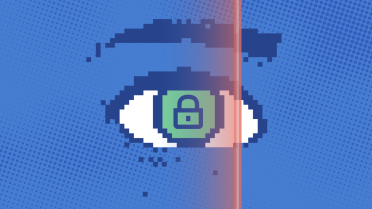Browser Isolation – No more web over-blocking?
Have you ever been blocked from a website that you know is safe? You're not alone.



Welcome back to SEB Tech Blog!
I hope you enjoy reading our tech blog articles. This time I have chosen to briefly tell you about what the deep web and what the dark web are. I will not explicitly go into any detail or justify visiting the dark web. In conclusion, deep web is good, dark web is not good.
The deep web is not something shrouded in obscurity. It fulfils an important task of protecting non-public data.
Search engines like Google and Bing can search and index websites because of links. These search engines use links to rank search results according to things like relevancy, inbound links, and keywords. Regular browsers search the so-called “surface web,” however that is where these search engines stop and cannot retrieve data.
For example, if you do a specific search for a public library catalogue to find a book, it is not possible to type the title into the search engines browser. Google or Bing will not be able to return a meaningful result for the specific library search of a book. That level of information would be in the deep web.
The reason search engines cannot return this data is because there are no links. Search engines crawl the internet by visiting one web page, then the links on that page, and then the links on subsequent pages and so on.
As an example, using deep web, it is required to go to the public library's website and use a search bar inside the website to locate this data on the library's servers.
This data is all over the internet. Almost every time you search internally on a website, you're accessing deep web content.
The deep web holds the content that's invisible to search engines. Here are a few examples of what is on the deep web:
A lot of what exists on the deep web consists of information that you probably wouldn't want to turn up in a web search, like your checking account information, because it's private and could be misused. This information is always protected by modern and strong identity protection to prevent unauthorized access to and misuse of sensitive personal information.
The dark web is a different story and probably what you might have assumed the deep web was if you read about it. Remember, the deep web and the dark web are two distinctly different things.
Although these two terms have been used interchangeably. The deep web contains mostly harmless data and digitized records. The dark web has raised concern worldwide about criminal activity.
Regular browsers can't access dark web websites. Instead, the dark web uses what's called “The Onion Router” hidden service protocol. “Tor” servers derived from “The Onion Router” are undetectable from search engines like Google or Bing and offer users complete anonymity while surfing the dark web. At the same time, dark web website publishers are also anonymous thanks to special encryptions provided by the Tor Onion protocol.
Accessing the dark web, you are not surfing the interconnected servers you regularly interact with. Instead, everything stays internal on the Tor network, which provides security and privacy to everyone equally.
Dark web website addresses end with .onion instead of the surface webs .com, .org, or .gov, for example.
The dark web operates with a high degree of anonymity. It hosts harmless activities and content, as well as highly criminal ones.
For instance, one dark web website might provide complex riddles. Another might be a kind of book club that makes eBooks look more professional. Yet another might offer a forum for people who believe free speech is threatened.
But the dark web is better known for dark content, meaning illegal and sometimes disturbing content. For instance, here's a sample of illegal things that can be found on the dark web:
It is possible to buy just about anything on the dark web. This includes things that are highly criminal to purchase.
Payment is done using Bitcoin, the cryptocurrency that helps assure buyers and sellers anonymity

Have you ever been blocked from a website that you know is safe? You're not alone.

Welcome back to the SEB Tech blog. This time I want to describe different types of cyber-attacks and what they mean.

Even with a strict password policy, it becomes difficult to guarantee that passwords are strong. The most common passwords we have are cracked in a few seconds.

Do you have feedback or thoughts about future blog articles? Get in contact with us at the e-mail address below.